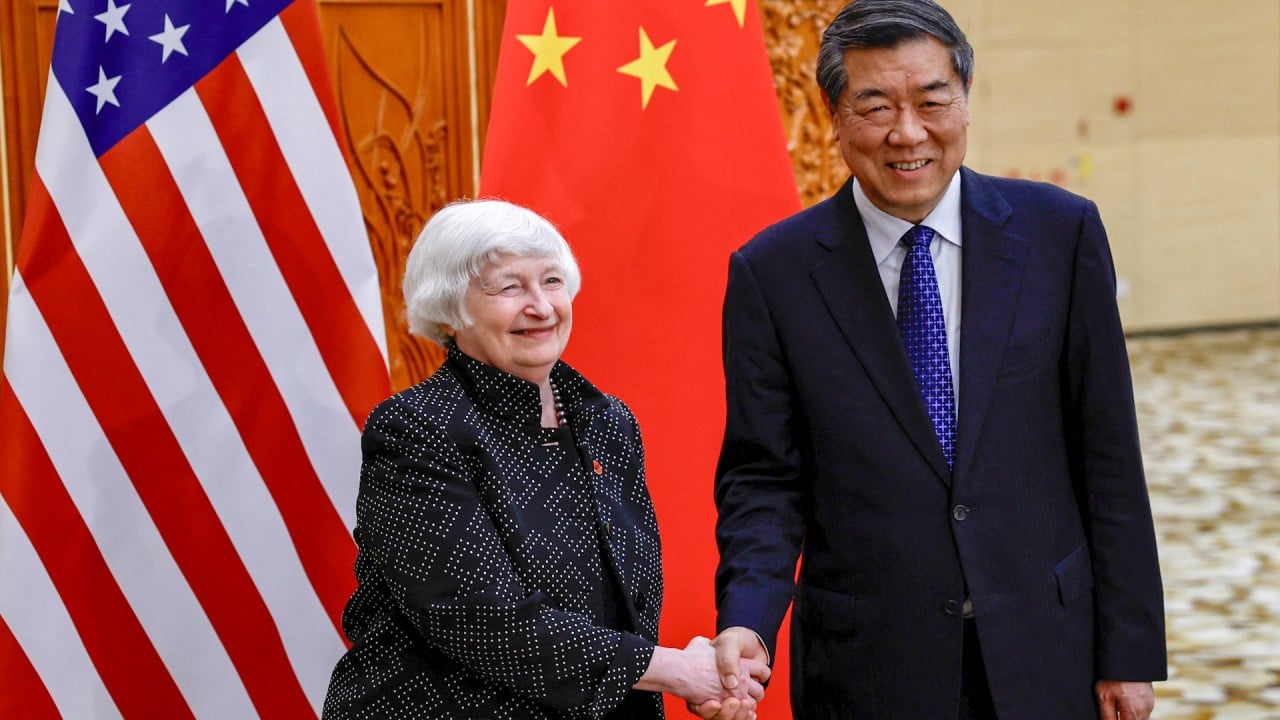
China-Middle East commercial ties enjoying a ‘renaissance’ as politics, trade spats strengthen shift from West, consultancy says
- China’s fractious trade relations with the West are strengthening bonds with the Arab world, Oliver Wyman says
- China and the Middle East saw their trade volume nearly double to US$507.2 billion in 2022 from 2017
China’s fractious trade relations with the US and its allies are strengthening diplomatic and commercial ties between the two regions, said Ben Simpfendorfer, a Hong Kong-based partner at the management consulting firm.
“China’s commercial relations with the Middle East are experiencing a renaissance,” he said in an interview. “The past few years have been transformative. It’s no longer a story of simply trading oil and consumer goods, it’s now a much broader and deeper relationship.”
Trade data over the past six years underlines the shift. China and the Middle East traded US$507.2 billion of goods in 2022, according to customs data, double the level in 2017. Trade with the Middle East rose 27 per cent in 2022, surpassing the growth with Southeast Asian nations (15 per cent), the European Union (5.6 per cent) and the US (3.7 per cent).

“What we are seeing is that Chinese electric vehicle (EV) makers are increasingly investing in other markets,” Simpfendorfer said. “They are beginning to open up factories in the emerging markets, [while] also looking at options in Europe or the US. That is an encouraging dynamic, because it does help to ease trade tensions and support employment growth in other markets.”
China’s energy trade with Middle East to surge in light of Iran-Saudi deal: UBS
However, Simpfendorfer warned that trade tensions between China and the West will persist and could worsen soon, especially after the US presidential election. Exports will remain under pressure over the next few years, and worries about overcapacity in China will remain on the front pages, he added.
Policymakers in the US and Europe have raised concerns about excess production of EVs, batteries, and solar panels, among others. If China continues to offload its excess output in overseas markets, Western firms could be forced to slash prices and cut jobs, they have warned.
During her trip to China earlier this month, US Treasury Secretary Janet Yellen sought to formalise discussions about excess capacity in China’s EV sector. Chinese officials pushed back against the move, saying that local exporters have already “fully responded” to those concerns.
Despite growing trade tensions, China will remain the world’s top manufacturing hub and a major exporting country, due to its sheer size and ability to innovate, Simpfendorfer said.
“There is no simple replacement for China’s manufacturing industry,” he added. “It’s difficult to replace its scale, efficiency, speed, and increasingly, its innovation, whether that is battery storage or new EVs, which will remain compelling for other countries around the world seeking to import these products.”


